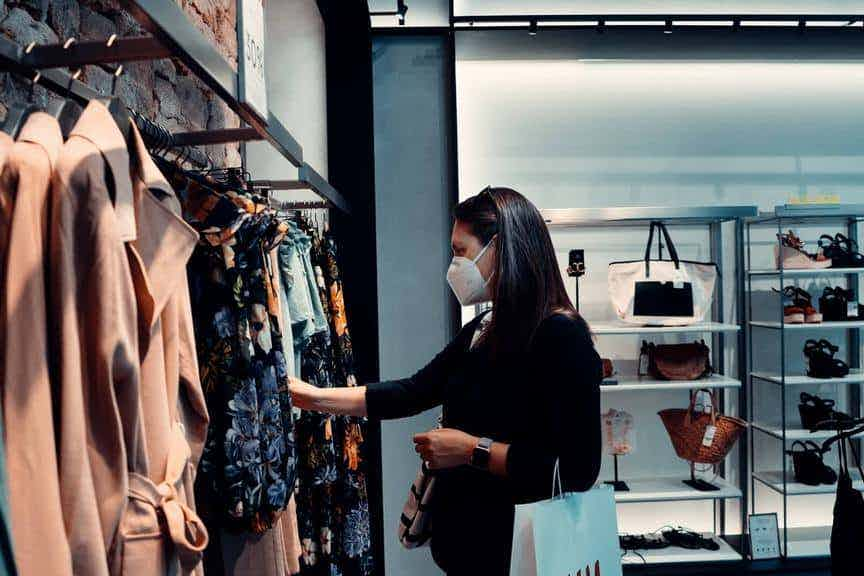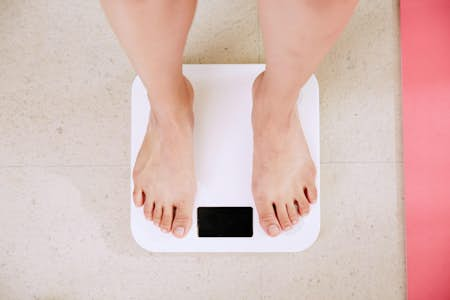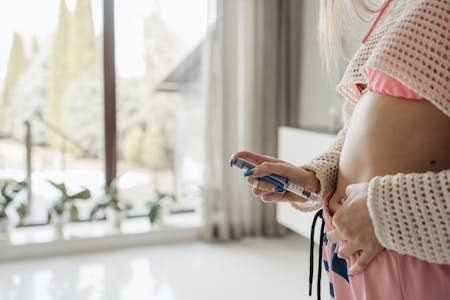Going for the weekly shop today is very different than before COVID-19. You can’t go too long without stocking up on your essentials. Public spaces like supermarkets can pose some of the highest risks of spreading germs.
People with underlying conditions like diabetes or asthma need to be more cautious. So, you must be careful when going shopping. You don’t need to avoid going out shopping at all. Merely taking a sensible approach to your safety can help reduce your exposure to germs.
Plan and Avoid Peak Times
Much like rush hour, there are peak times for shopping. Going early or late is better as most supermarkets are busy mid-morning to lunchtime and early evening. Weekends can be more hectic, especially around lunchtime. The weather can affect shopping as well, so a very sunny weekend may see more people rushing out to pick up BBQ supplies.
Being prepared before you go can reduce your stress, so it’s worth creating a shopping list. Try to write down everything you need for a week, as shopping less frequently reduces your contact with the public. Group your list of items to reduce extra trips around the shop.
As it is now mandatory to wear a mask (unless you are exempt), aim to have a supply of masks at home. Make it a routine to pick up your mask when you leave the house. You can also take a small bottle of hand sanitiser with you or wear disposable gloves.
Special Entry for Elderly or Healthcare Workers
Many of the chain supermarkets offer earlier opening hours for the elderly or healthcare workers. This is ideal as the store most likely has been freshly cleaned, reducing the risk of contact with germs and other people.
Keep a Distance from Others
It isn’t unusual to find a queue outside supermarkets. Many have signage indicating the distance you should keep from others, which is recommended at 2m (roughly 6ft away). Where it isn't easy to socially distance, 1m is advised.
When you're in the shop, it may be tempting to lean around someone to grab your item. Many people are anxious about their weekly shop, so it is essential to be considerate to their personal space.
Sanitise Yourself and Your Trolley or Basket
Before you enter the shop, wipe down your trolley or basket handle with an antibacterial wipe. Many shops provide these at the door but bring your own, just in case. Apply hand sanitiser to your hands or put on a fresh pair of disposable gloves. Ensure that your face mask fits comfortably before you enter the shop.
Avoid Touching Your Face and Eyes
It is instinctive to adjust your glasses or rub your nose. However, it’s best to avoid touching your face at all, even when wearing a face mask. If you do need to adjust your mask, sanitise your hands before and after to avoid spreading germs. As our hands come into more contact with a range of surfaces, they pose the most considerable risk of spreading germs.
If you must sneeze or cough, direct it away from others. Sneeze into a clean tissue or your elbow if you don't have anything to hand. Dispose of the tissue as soon as you can.
Go Contactless as Much as Possible
When shopping, try to use cashless means of payment. Many debit cards now have a limit of £45, not £30. You can easily do a week’s shop without breaking up your shop into smaller transactions.
When going through the checkout, try to avoid making contact with the cashier. Some supermarkets advise you to pack your bags away from the till. This keeps the queue moving and reduces people being in close contact with others.
If you need to pay in cash, place the money on the counter for the cashier to pick. Do try to avoid touching their hands where possible and sanitise your hands after handling any money.
Sanitise as You Leave the Shop
Sanitise your hands as you leave the shop. If you have driven, ensure that you sanitise your hands again after returning your trolley. Wiping down your car door handles and the steering wheel can help to reduce the spread of germs.
Create a Cleaning Routine When You Come Home
You’ve done a fantastic job to reduce the risk of spreading germs during your shop, but what about when you get home?
A simple cleaning routine will ensure your safety when you bring in outside items. When you come home, leave your shopping bags in the hallway or even outside if you can.
Next, carry your items to a prepared space in your kitchen. Dispose of your face mask or place it in the wash. Then, wash your hands with soap and hot water for 20 seconds, and dry them on a clean towel.
Wipe down all packaged items with a fresh disinfectant wipe and put them away. Fresh produce can be cleaned under running water to remove any loose soil. Note, you do not need to use any cleaning chemicals on fruit or vegetables.
Ensure you store all fresh produce at the correct temperature and in the right location in your home. Typically, you should:
- Store raw meat at the bottom of the fridge, vegetables in the drawer, and dairy products in the middle or at the top.
- Keep fridges temperatures between 1-4° C and freezers around -18° C.
- Check best before dates regularly and cook products soon as possible after purchase.
- Store leftovers in airtight containers.
- Clean inside the fridge once a week and clean the door handle regularly.
Once you have finished putting everything away, sanitise or wash your hands one last time.
Summary
It may seem like a lot to remember, but taking extra precautions can give you peace of mind when it comes to shopping. Aiming to practice sensible hand hygiene and following the rules of social distancing will go a long way. Giving other shoppers the time and space to do their own is a kind thing to do, as many people are worried about germs in their own way. The weekly shop doesn’t need to be and shouldn’t be stressful when you know how to keep safe from germs.






